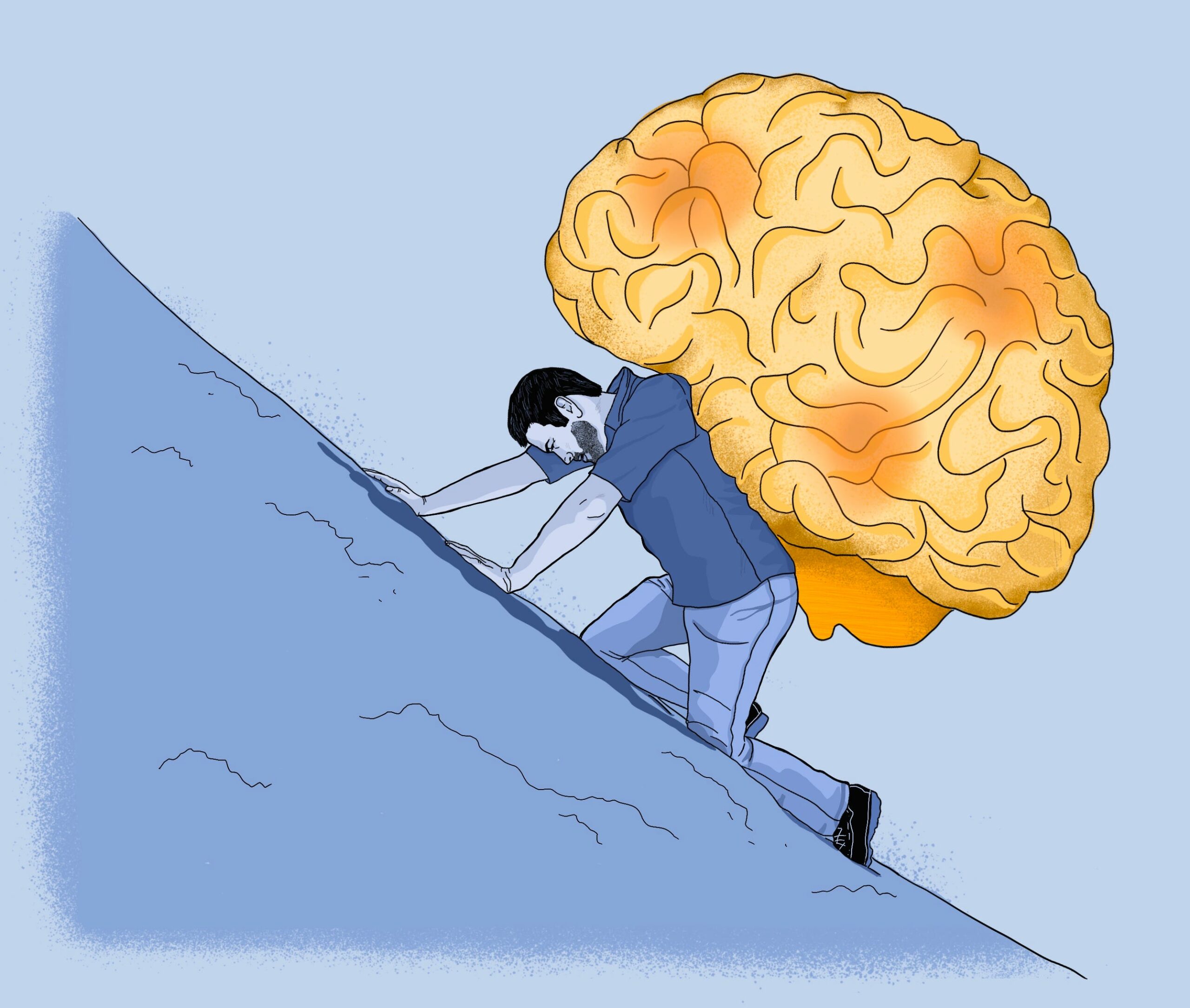What does languishing mean? What is the psychology behind it? In this blog post, we will explore these questions and more. We will discuss what languishing is, what causes it, and how to overcome it. We will also take a look at some of the latest research on the topic. If you are interested in learning more about languishing and its effects on psychology, then this blog post is for you.
Contents
What Is Languishing?
 Languishing is a psychological term that is used to describe a situation where someone is not making any progress in their life. This can be due to a number of factors, including boredom, lack of motivation, or feeling stuck. It also means that the person is not experiencing any joy or happiness in their life.
Languishing is a psychological term that is used to describe a situation where someone is not making any progress in their life. This can be due to a number of factors, including boredom, lack of motivation, or feeling stuck. It also means that the person is not experiencing any joy or happiness in their life.
Languishing can have a major impact on someone’s mental health and well-being. If you are languishing, you may feel like you are stuck in a rut and that there is no way out. This can lead to feelings of depression, anxiety, and even despair. It is important to seek help if you are feeling this way. It also is important to find ways to break out of your rut and start making progress in your life.
Signs of Languishing

There are many signs of languishing. A person who is languishing may:
Feeling Disconnected From Others
There are many ways that people can feel disconnected from others. People may feel like they are on the outside looking in, or that they don’t really connect with other people in a meaningful way. Sometimes there are specific events that cause people to feel disconnected (like a death in the family), but sometimes people just generally don’t feel close to others.
Not Feeling Passionate About Anything
When people don’t feel passionate about anything, it can be a sign that they are languishing. People who are passionate about things tend to have more energy and enthusiasm for life. When someone is languishing, they may not feel excited or interested in anything.
Feeling Hopeless or Worthless
People who are feeling hopeless or worthless may be languishing. These feelings can be quite demoralizing and make it hard to see any point in continuing on with life. If someone feels like they are unworthy of love or attention, this can also lead to feelings of hopelessness.
Trouble In Concerntration
Sometimes there are physical symptoms of languishing, such as trouble in concentration. When people are having trouble focusing on anything, it can be a sign that they are not feeling mentally well. This symptom is often accompanied by others, such as feeling tired all the time or feeling like your thoughts are racing.
Sense of Emptiness
There can be many causes of a sense of emptiness. It may be caused by a loss of something or someone important in your life. Alternatively, it may be that you have never felt connected to anything or anyone. This can leave you feeling like there is a void inside of you. It can also be a sign that you are languishing.
Unable To Describe Feelings
There are many reasons why people may be unable to describe their feelings. One possibility is that they have never really taken the time to explore their feelings and don’t really know what they are feeling. Another possibility is that they feel overwhelmed by their emotions and don’t know how to express them. When a person is languishing, it can be difficult for them to put their feelings into words.
Inability To Enjoy Activities
People who are languishing may find that they are no longer able to enjoy activities that they used to enjoy. This can be a sign that they have lost interest in life and stopped finding pleasure in the things that once made them happy. When people stop enjoying the things that make them happy, it is often a sign that something is wrong.
Experiencing Thoughts of Suicide
Thoughts of suicide can be a sign that someone is languishing. If you are experiencing these thoughts, it is important to get help right away. There are many resources available for people who are struggling with suicidal thoughts, and there is always hope. You are not alone. It can be difficult to ask for help, but it is important to reach out if you are feeling like you can’t go on.
Causes of Languishing

There are many causes of languishing. Some of these are:
Lack of Purpose
Sometimes there may be a lack of purpose in life. This may be due to not having a clear goal or path set out for oneself. When people do not have anything to look forward to, they can easily become discouraged and give up on life. It can also be caused by a major life event such as the death of a loved one.
Lack of Social Interaction
Another cause of languishing can be a lack of social interaction. This may be due to being isolated from others or feeling like one does not belong in any social group. This can lead to feelings of loneliness and despair which can further contribute to languishing.
Lack of Meaningful Relationships
The third cause of languishing may be a lack of meaningful relationships. This may be due to having superficial or poor-quality relationships. It can also be caused by not having enough close friends or family members to confide in and rely on. This can lead to feelings of isolation and insecurity which can further contribute to languishing.
Lack of Support
Another reason why people may languish is that they don’t have the necessary support from friends or family members. If someone feels like they are constantly struggling alone, it can be very discouraging and lead to feelings of worthlessness. This may also be due to not having access to resources or networks that could help them improve their situation.
Depression/Anxiety Disorders
Depression and anxiety disorders can also lead to feelings of hopelessness and despair. People who suffer from these conditions often feel like there is no way out and that things will never get better. These negative thoughts can trap someone in a cycle of despair which can be very difficult to break out of. It may be helpful to seek professional help if you are struggling with these conditions.
Physical Health Problems
There can be physical health problems that contribute to languishing as well. People who are in poor health or have a chronic illness may feel like they can’t do anything to improve their situation. This can lead to feelings of hopelessness and despair. It is important to remember that even though life may be difficult, there is always hope and things can get better.
Negative Impacts of Languishing

There are many negative impacts of languishing:
Development of Chronic Symptoms
Sometimes there are physical symptoms that develop as a result of mental health issues. For example, someone who is depressed may have trouble sleeping, which can lead to fatigue. Or, they may have a poor appetite and lose weight. If left untreated, these physical symptoms can become chronic.
Increased Risk of Substance Abuse
People who are languishing are at an increased risk for substance abuse. This is because they may turn to drugs or alcohol to numb their pain or escape from their reality. Additionally, people who are struggling with mental health issues are more likely to self-medicate with substances.
Problems in Personal Relationships
Languishing can also cause problems in personal relationships. When someone is struggling mentally, they may withdraw from friends and family. They may also have difficulty communicating or connecting with others. This can lead to isolation and loneliness. Additionally, mental health issues can cause conflict in relationships.
Lack of Energy
Sometimes there are physical symptoms that develop as a result of mental health issues. For example, someone who is depressed may have trouble sleeping, which can lead to fatigue. Or, they may have a poor appetite and lose weight. If left untreated, these physical symptoms can become chronic.
Unhappiness
When someone is languishing, they often feel unhappy. They may feel like they are not living up to their potential or that their life is not going the way they want them to. Additionally, people who are languishing may feel hopeless and helpless. If you are experiencing these emotions, it is important to seek help from a mental health professional.
Diagnosis of Languishing

The diagnosis of languishing depends on how the person is feeling. It can be diagnosed if a person has lost interest in their hobbies, feels like they can’t get motivated, and has low energy levels. There are many ways to diagnose such as:
There are no specific tests for languishing, but a mental health professional can assess whether a person is experiencing symptoms of depression or anxiety.
They may ask questions about the person’s mood, sleeping patterns, and appetite. They may also ask about any thoughts of self-harm or suicide.
If the person is diagnosed with depression or anxiety, they may be referred for treatment.
Treatment of Languishing

Treating languishing is very important for everyone, no matter how old you are. Languishing can be treated with many different methods, but the most important thing is to get help from a professional. If you think you might be languishing, please reach out for help. Some of these methods are:
Therapy
Therapy is one of the best ways to treat languishing. A therapist will be able to help you understand your thoughts and feelings, and give you the tools you need to deal with them. It also means that you have someone to talk to who understands what you’re going through.
Medication
If therapy doesn’t seem to be helping, medication may be a good option for you. There are many different medications that can help with languishing, so it’s important to talk to your doctor about what might work best for you. There are a number of medications that can help to improve your mood, so you don’t have to languish any longer.
Lifestyle Changes
Making some changes to your lifestyle can also help to improve your mood and reduce the symptoms of languishing. Some things you can try are:
- Exercising regularly
- Eating a healthy diet
- Getting enough sleep
- Taking breaks during the day to relax and de-stress
Self-Care
It’s also important to take care of yourself when you’re struggling with languishing. This means taking time for yourself, doing things that make you happy, and spending time with people who support you. It also gives you a chance to re-evaluate your goals and what you want out of life.
Helping Someone Who Is Suffering From Languishing

There are many ways in which you can help someone with languishing. The most important thing is to be supportive and understanding. Here are some tips:
Encourage Them To Express Feelings
There are many instances when you will need to encourage the person to express their feelings. This is because people who are languishing often bottle up their emotions and don’t talk about them. This can lead to further emotional distress. So, it’s important to encourage the person to express their feelings. It can also mean that they are able to get help from you.
Be There For Them
One of the most important things that you can do is be there for them. This means being available when they need you and providing support. It’s also important to listen to what they have to say, without judging them. Let them know that you care about them and want to help them through their struggles.
Offer Practical Assistance
People who are languishing often don’t have the energy or motivation to take care of themselves. So, it’s important that you offer practical assistance, such as helping with day-to-day tasks or providing food and clothing. You may also need to assist with financial matters if the person is unable to take care of
Make Them Feel Valued
It’s also important to make the person feel valued. This can be done by showing interest in what they’re saying, listening to them, and spending time with them. It’s also important to let them know that you care about them and want to help them through this tough time.
Encourage Them To Seek Help
If the person is struggling with languishing, it’s important to encourage them to seek help from a professional. This is because they may need medication or therapy to help them cope with their emotional distress. It can also be helpful to connect them with support groups or other resources that can help them.
Provide Support
It’s important to provide support for the person who is struggling with languishing. This can mean being there for them emotionally, offering practical assistance, and making them feel valued. You may also need to encourage them to seek help from a professional. By providing support, you can help the person get through this tough time. It may seem daunting, but it’s important to remember that you’re not alone in this. There are many people who care about you and want to help you through this difficult time.
Conclusion
Languishing is something that we all experience at some point in our lives. It is a feeling of emptiness and dissatisfaction. Although it is not as well known as other mental health conditions, it is important to be aware of languishing and its effects. If you think you may be experiencing symptoms of languishing, reach out to a mental health professional for help.
A Word From Therapy Mantra
Your mental health — Your psychological, emotional, and social well-being — has an impact on every aspect of your life. Positive mental health essentially allows you to effectively deal with life’s everyday challenges.
At TherapyMantra, we have a team of therapists who provide affordable online therapy to assist you with issues such as depression, anxiety, stress, workplace Issues, addiction, relationship, OCD, LGBTQ, and PTSD. You can book a free therapy or download our free Android or iOS app.


